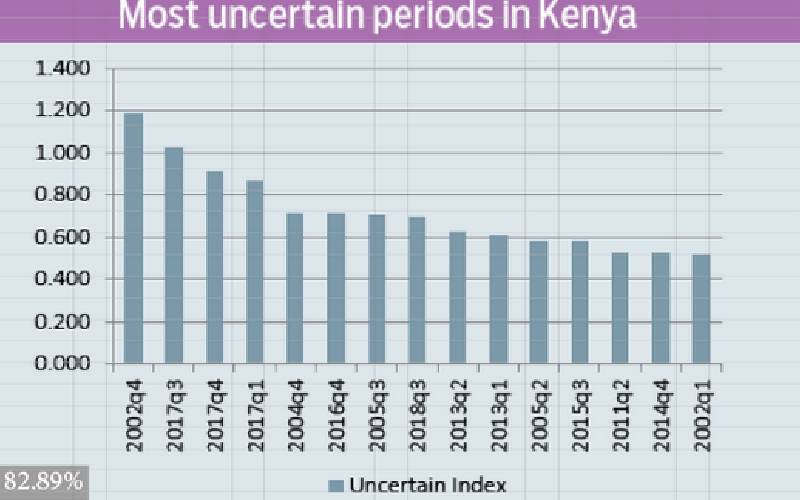×
The Standard e-Paper
Join Thousands Daily
 Kenya was ranked as having the second-worst business environment in the world in the run-up to the 2017 general election, according to a new survey.
Kenya was ranked as having the second-worst business environment in the world in the run-up to the 2017 general election, according to a new survey.
Developed by the International Monetary Fund (IMF), the World Uncertainty Index (WUI) released yesterday shows that only South Africa fared worse than Kenya in the world between July and October 2017.